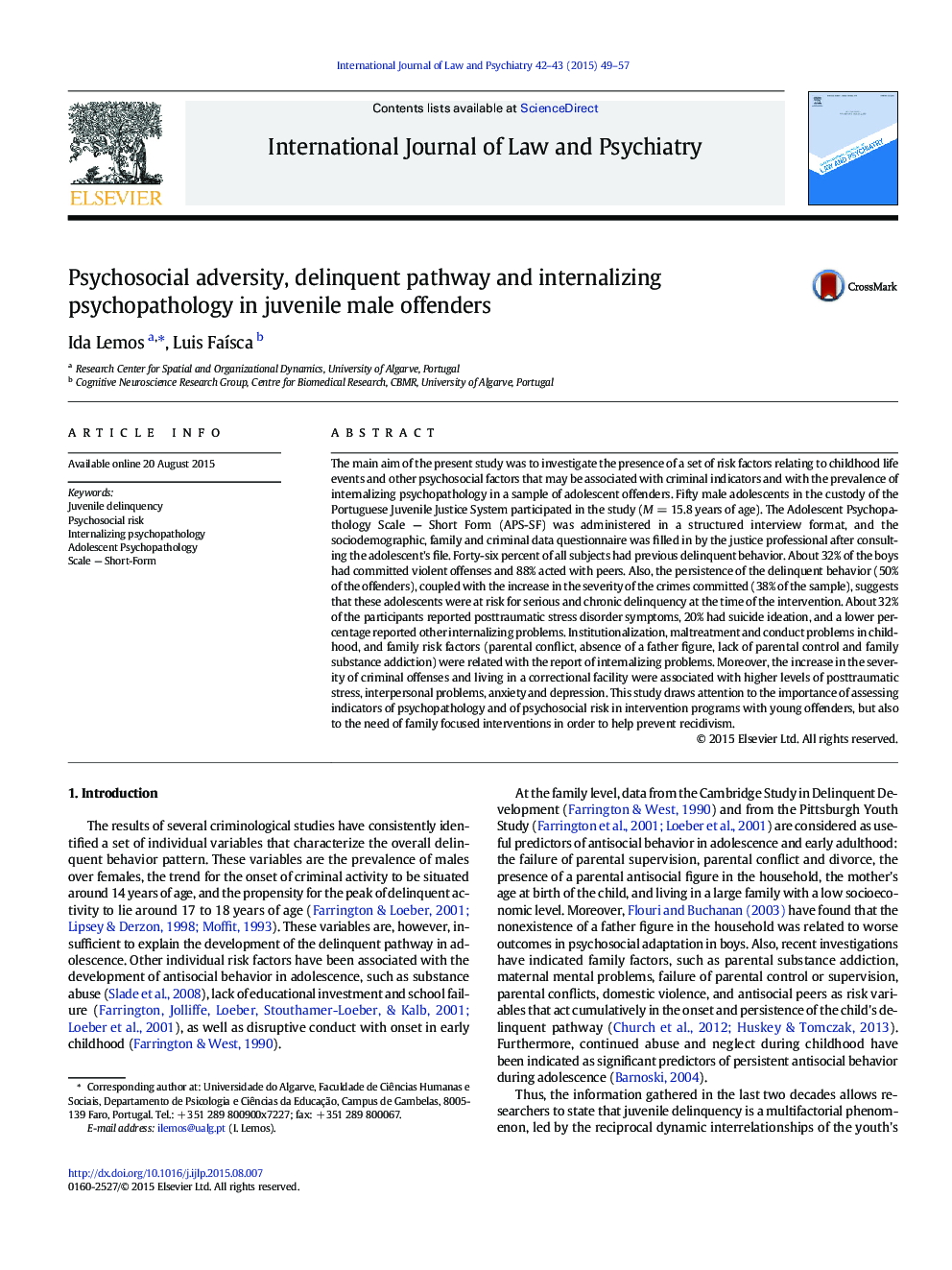| Article ID | Journal | Published Year | Pages | File Type |
|---|---|---|---|---|
| 100710 | International Journal of Law and Psychiatry | 2015 | 9 Pages |
The main aim of the present study was to investigate the presence of a set of risk factors relating to childhood life events and other psychosocial factors that may be associated with criminal indicators and with the prevalence of internalizing psychopathology in a sample of adolescent offenders. Fifty male adolescents in the custody of the Portuguese Juvenile Justice System participated in the study (M = 15.8 years of age). The Adolescent Psychopathology Scale — Short Form (APS-SF) was administered in a structured interview format, and the sociodemographic, family and criminal data questionnaire was filled in by the justice professional after consulting the adolescent's file. Forty-six percent of all subjects had previous delinquent behavior. About 32% of the boys had committed violent offenses and 88% acted with peers. Also, the persistence of the delinquent behavior (50% of the offenders), coupled with the increase in the severity of the crimes committed (38% of the sample), suggests that these adolescents were at risk for serious and chronic delinquency at the time of the intervention. About 32% of the participants reported posttraumatic stress disorder symptoms, 20% had suicide ideation, and a lower percentage reported other internalizing problems. Institutionalization, maltreatment and conduct problems in childhood, and family risk factors (parental conflict, absence of a father figure, lack of parental control and family substance addiction) were related with the report of internalizing problems. Moreover, the increase in the severity of criminal offenses and living in a correctional facility were associated with higher levels of posttraumatic stress, interpersonal problems, anxiety and depression. This study draws attention to the importance of assessing indicators of psychopathology and of psychosocial risk in intervention programs with young offenders, but also to the need of family focused interventions in order to help prevent recidivism.
